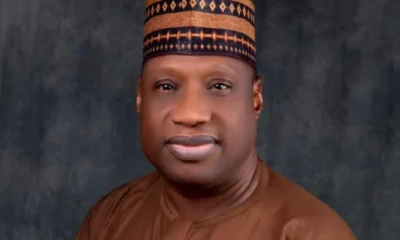Lifestyle
Sex, STDs and Silence: The Hidden Shame of Sexual Health in Nigeria
Despite rising cases of STDs and sexual violence, most Nigerians still avoid conversations about sexual health.

- Despite rising cases of STDs and sexual violence, most Nigerians still avoid conversations about sexual health. Here’s why silence is killing more than shame ever could.
Keywords:
sexual health in Nigeria, STD awareness, Nigerian relationships, HIV prevention, sex education, women’s health, sexual stigma
The Silence Nobody Talks About
In many Nigerian homes, the word “sex” is still treated like a curse. It’s whispered, avoided, or wrapped in euphemisms like “bad thing” or “immorality.” Parents would rather talk about your grades, your job, or your spiritual life — but not your body. Yet, behind this silence lies a public health crisis that affects millions.
A World Health Organization report shows that Nigeria has one of the highest rates of sexually transmitted infections (STIs) in Sub-Saharan Africa. From gonorrhea and chlamydia to the rising wave of HIV infections among youth, the numbers keep growing — but the conversations remain buried in shame.
The Cultural Wall of Shame
For decades, cultural and religious beliefs have turned sexual health into taboo. Many Nigerians are taught that sex is dirty until marriage, and even after marriage, talking about it openly is seen as immoral.

A typical mother would rather scold her daughter for buying condoms than educate her about safe sex. Meanwhile, young men boast about sexual exploits but rarely learn about consent or STD prevention.
This cultural silence has created generations who are sexually active but sexually ignorant. And ignorance, in this case, kills.
When Religion and Morality Become a Barrier
Religion is a major pillar of Nigerian identity. Churches and mosques influence behavior more than health campaigns. But while faith communities do incredible social work, many still fail to address sexual health education.
Preachers talk about abstinence, not HIV testing. They condemn fornication, but not rape culture. They encourage purity but say nothing about HPV vaccination that could save young girls from cervical cancer.
As a result, many believers struggle silently — between faith and fear. Some pray for healing from infections they could have prevented with simple education.
DON’T MISS: 7 Subtle Gestures Women Use That Secretly Drive Men Wild
The Hidden Faces of Infection
Because of stigma, Nigerians often hide their sexual health problems. Visiting a clinic for an STD test is seen as shameful. People self-medicate, buy random drugs from chemists, or rely on herbal mixtures that do more harm than good.
A National Agency for the Control of AIDS (NACA) report revealed that nearly 50% of sexually active Nigerians have never been tested for HIV. Many fear judgment more than diagnosis.
Even educated adults who know better still prefer to “keep quiet and manage it.” That silence spreads disease faster than any virus.
Social Media: Awareness or Misinformation?
On platforms like X (formerly Twitter) and TikTok, Nigerian youths talk about sex more openly than ever before. But instead of accurate education, social media often spreads half-truths and trends.
“Sex-positive” influencers discuss pleasure without mentioning protection. Some push dangerous “DIY treatments” or body enhancement pills. Meanwhile, many still believe myths like:
- “You can’t get HIV from oral sex.”
- “If you wash immediately after, you’re safe.”
- “STDs are only for prostitutes.”
These lies circulate faster than facts — and the consequences are deadly.
Women Bear the Heaviest Burden
In Nigeria’s patriarchal society, women often pay the highest price for sexual silence. From teenage pregnancies to stigmatization after rape, the system rarely favors them.
A young woman who contracts an infection is often blamed — labeled “wayward.” But her male partner? He walks free.
Even at hospitals, female patients complain of being judged or humiliated by health workers. Some doctors still assume a woman seeking STD testing is “promiscuous.” That’s why many suffer in silence, using private online pharmacies or fake herbal cures instead.
A UNFPA study on women’s reproductive health revealed that fear of stigma remains the top reason why women delay or avoid treatment for sexual infections.
Sex Education: Still a Battlefield
In 2023, when the government introduced Comprehensive Sexuality Education (CSE) into school curriculums, some parents protested, claiming it would “corrupt” their children.

But in truth, silence corrupts faster than information.
Countries like Kenya and Rwanda that adopted early sex education have seen lower rates of teenage pregnancy and STDs. Meanwhile, Nigerian teenagers are learning from social media challenges instead of certified health educators.
The Way Forward: Breaking the Silence
To fix this, Nigeria needs more than hospital campaigns. We need honest conversations in schools, homes, churches, and online spaces.
- Parents must replace shame with information.
- Religious leaders must speak the truth with compassion, not condemnation.
- Media outlets should prioritize verified sex education content.
- Government agencies must invest in youth-friendly clinics and online awareness.
Platforms like HelloDoc Africa and online sexual health counseling apps can help people get discreet advice without fear of stigma.
Why Talking Saves Lives
Silence doesn’t protect anyone — it only empowers disease and shame. Every time we avoid a conversation about sexual health, we allow misinformation to grow.
When people know how their bodies work, how infections spread, and how to seek help early, they live longer, healthier, and happier lives.
Talking about sex doesn’t make a society immoral.
It makes it informed.
Conclusion: It’s Time to Speak Up
The real danger isn’t sex — it’s silence. Nigeria’s next generation deserves better than whispered warnings and outdated taboos. They deserve access to truth, care, and dignity.
So, the next time someone says “we don’t talk about such things,” reply with this:
“That’s exactly why we should.”






















